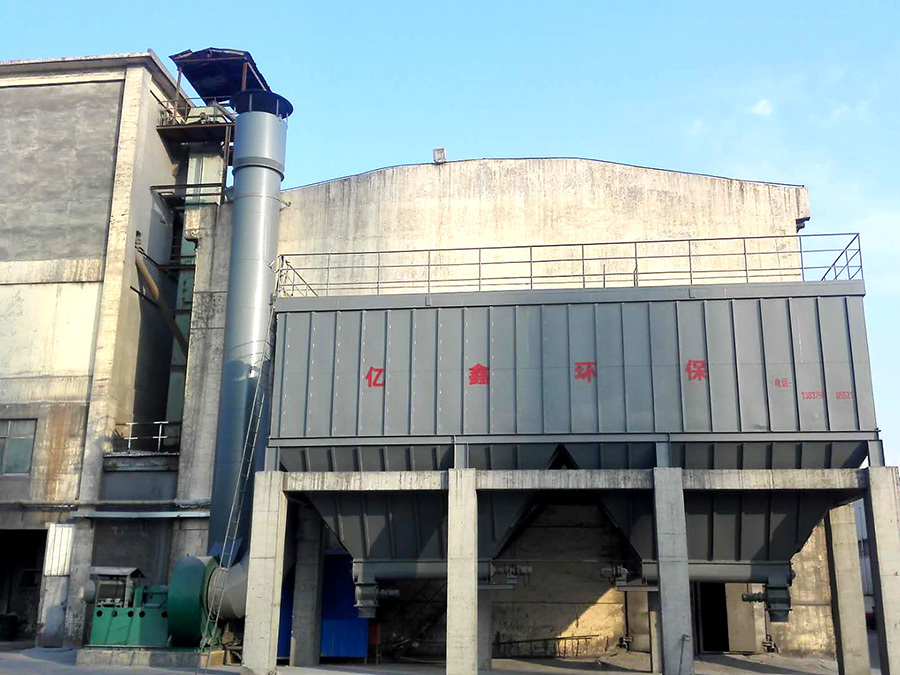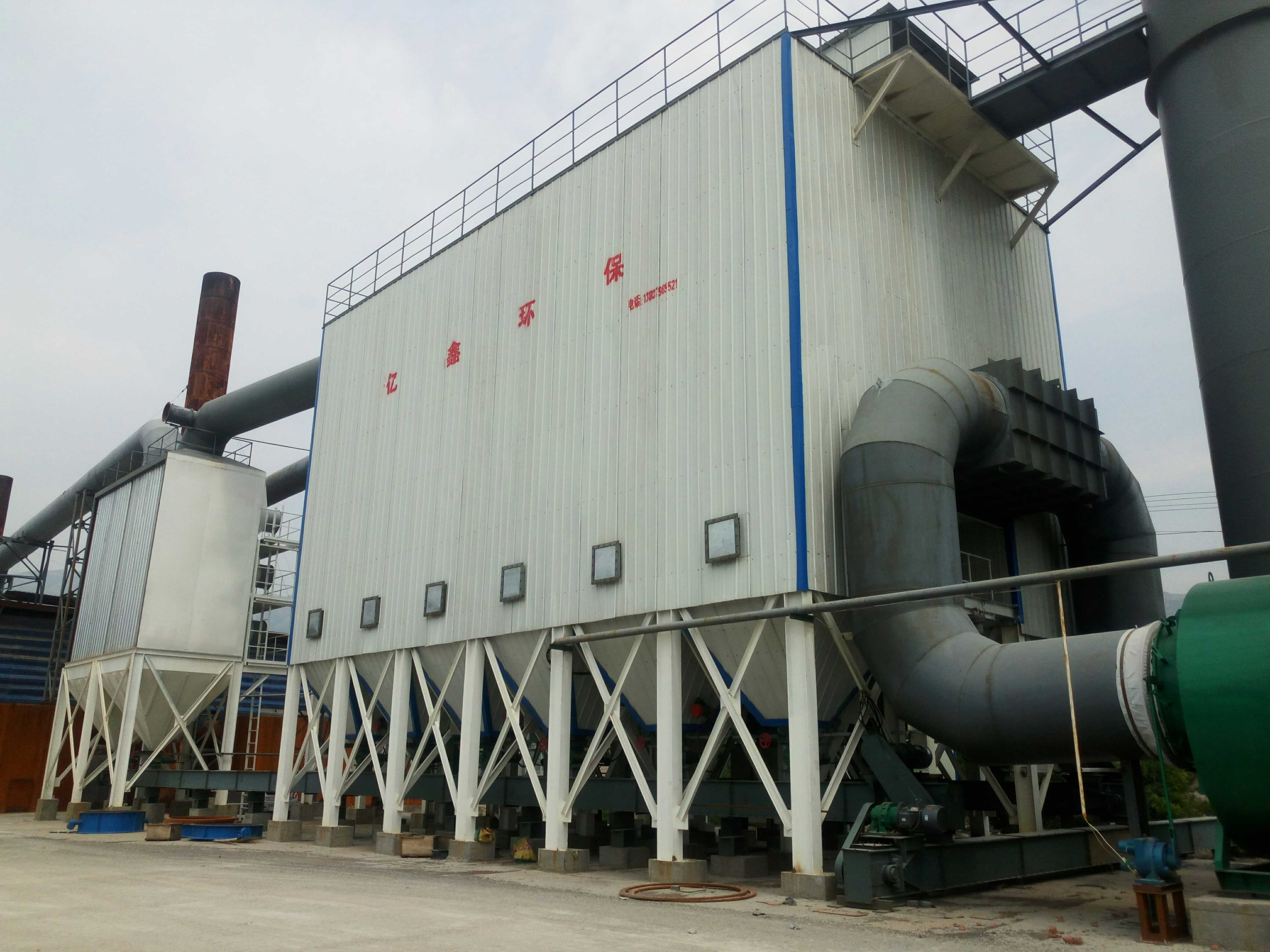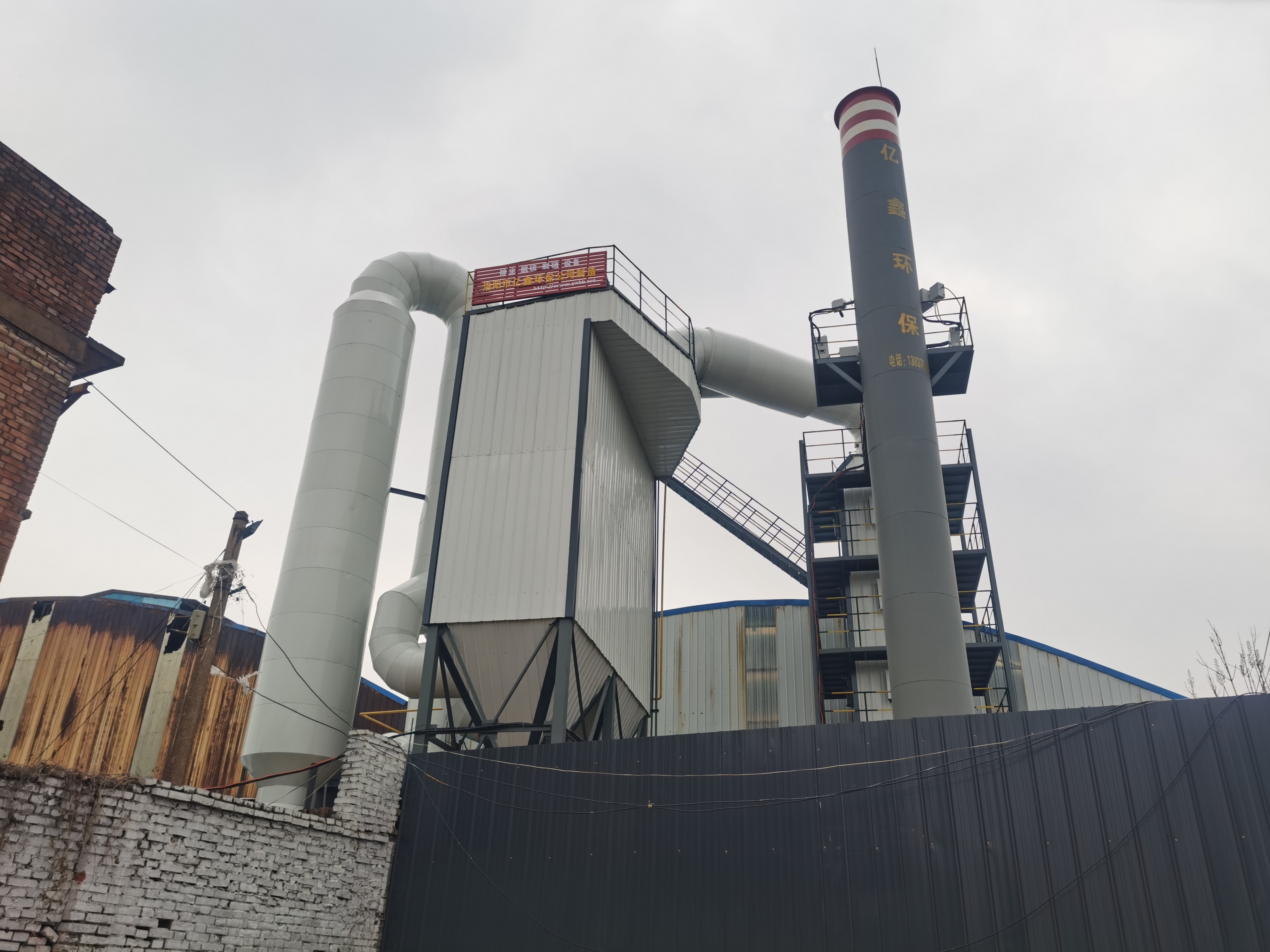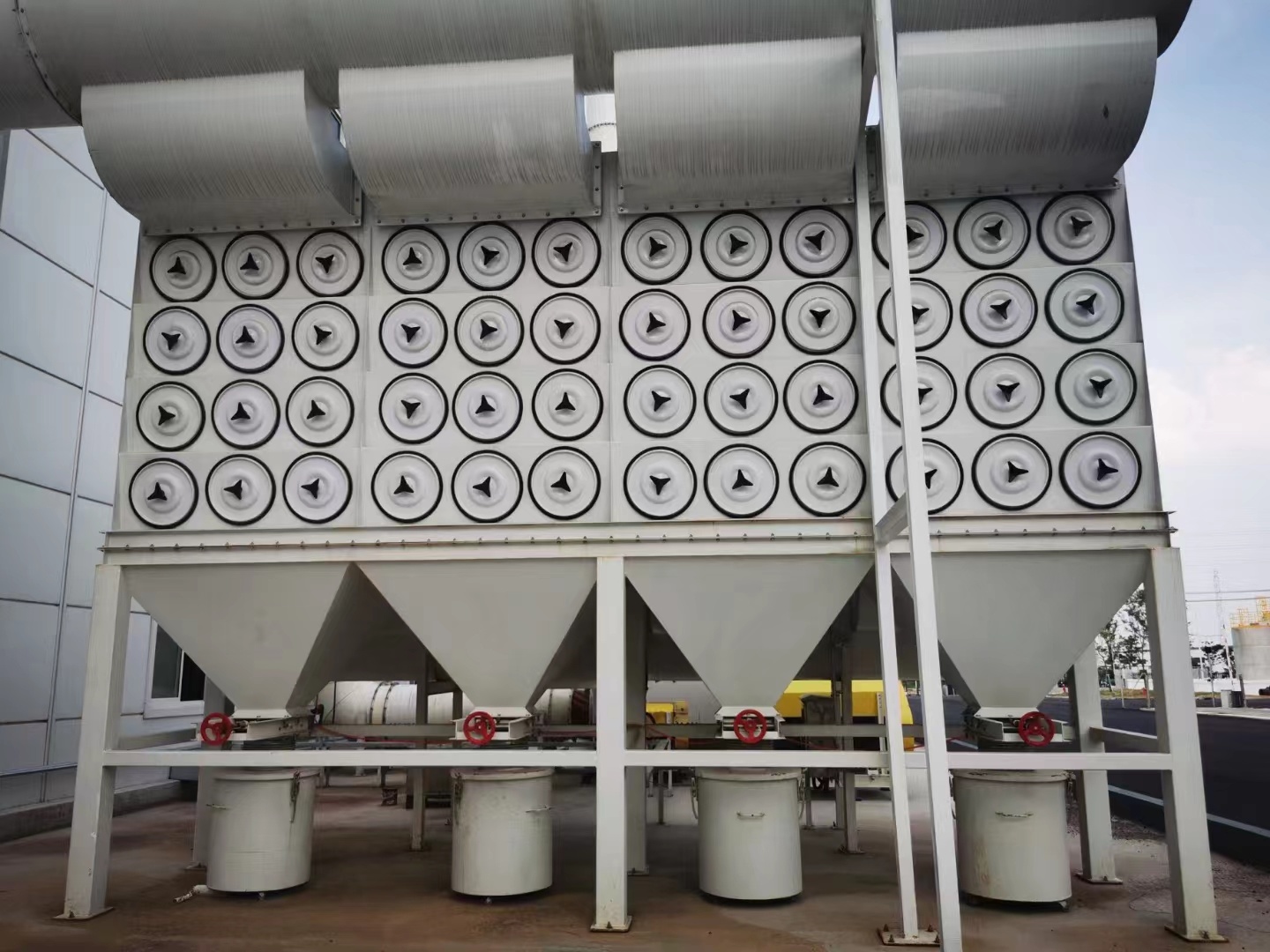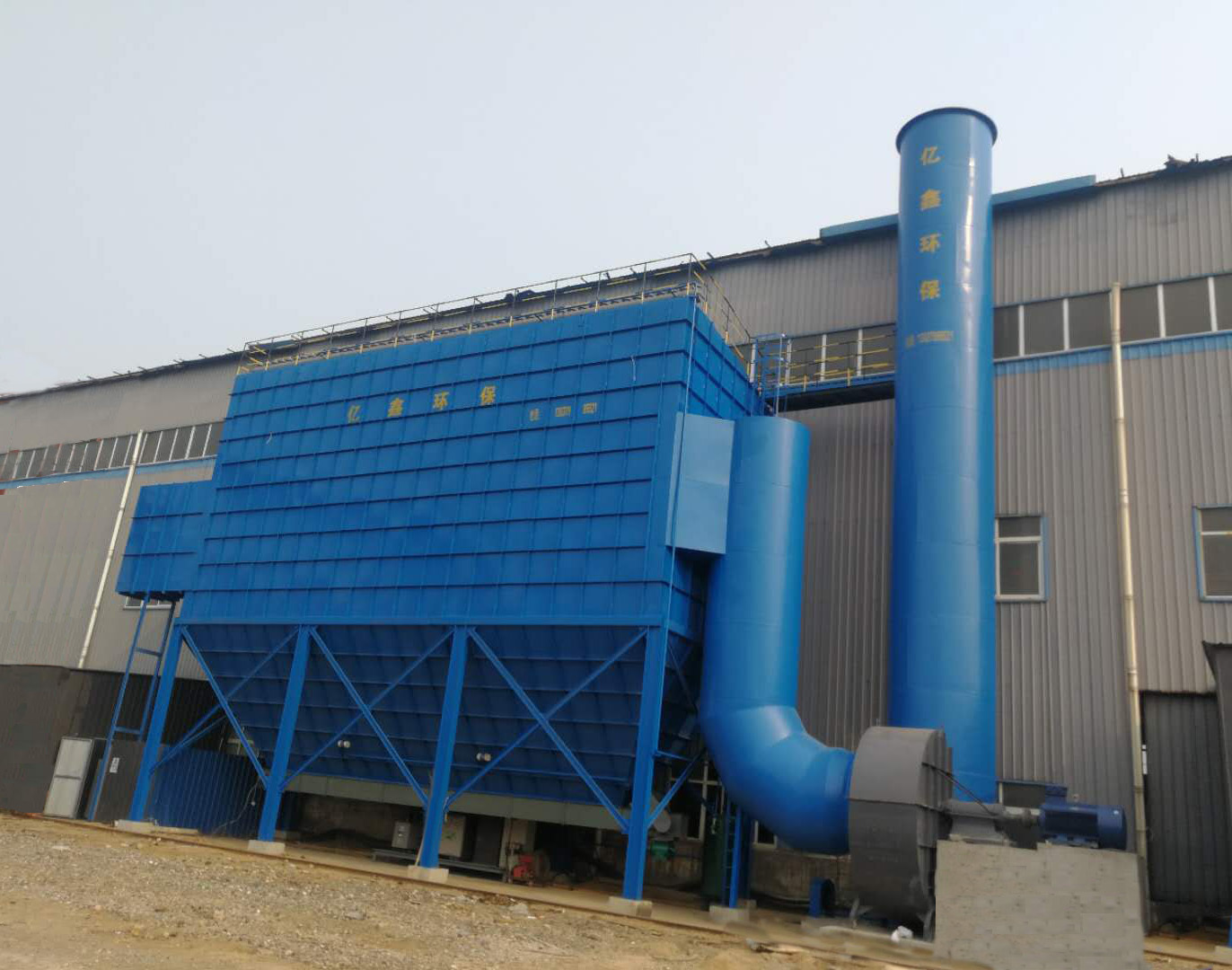Working principle and application fields of industrial dust collectors
In modern industrial production, environmental protection is increasingly valued. Air pollution not only affects the health of workers but can also lead to equipment malfunctions and low production efficiency. To address these issues, industrial dust collectors have emerged. So, what exactly is an industrial dust collector? How does it work? And what are its applications? Today, let's discuss these topics. What is an industrial dust collector? Simply put, an industrial dust collector is a device specifically used to remove dust, smoke, and other harmful substances generated during industrial production. It uses physical or chemical methods to separate particulate matter suspended in the air, ensuring that the air discharged into the environment is clean and pollution-free. The working principle of an industrial dust collector The working principle of an industrial dust collector is actually not complicated. Imagine using a sieve to sift flour; an industrial dust collector uses a similar method to "sift" particulate matter from the air. Its main working steps can be divided into the following: 1. **Air intake**: The industrial dust collector first uses a fan to draw in air containing dust. 2. **Dust separation**: After the air enters the dust collector, it passes through a series of filtering devices, such as bags and filter cartridges.
Enhancing Corporate Environmental Image: Selecting Excellent Industrial Dust Collector Suppliers
Enhancing Corporate Environmental Image: Selecting Excellent Industrial Dust Collector Suppliers In today's era of heightened emphasis on sustainable development, a company's environmental image has become increasingly important. Environmental protection is not only a matter of corporate social responsibility but also a key to winning consumer trust and market competitiveness. Among numerous environmental protection measures, selecting suitable industrial dust collector suppliers is undoubtedly an important step in enhancing a company's environmental image. This article will discuss how to choose excellent industrial dust collector suppliers to help companies make further progress in environmental protection. Why are industrial dust collectors so important? First, industrial dust collectors play a vital role in the production process. Imagine what a factory's production environment would be like without good dust removal equipment? Dust and powder would fly everywhere, and workers working in such an environment would not only be affected in health but also have reduced production efficiency. This will not only damage the company's image but may also lead to legal issues. Therefore, choosing an excellent industrial dust collector supplier is crucial. Standards for Selecting Industrial Dust Collector Suppliers When you decide to look for industrial dust collector suppliers, there are several key standards to consider: 1. Technical Strength High-quality suppliers usually have strong technical teams that can provide customized solutions based on different production needs.
The importance of industrial dust removers in air pollution control
The Importance of Industrial Dust Collectors in Air Pollution Control In today's rapidly developing industrial age, air quality issues are becoming increasingly prominent. We all know that a healthy living environment is a basic need for everyone, and the worsening of air pollution not only affects our physical health but also threatens the balance of the entire ecosystem. In the face of this invisible "battle," the role of industrial dust collectors cannot be underestimated. So, how important are industrial dust collectors? Let's explore together. What is an industrial dust collector? Simply put, an industrial dust collector is a device specifically used to remove dust, smoke, and other harmful substances from industrial production processes. Imagine you're cooking in the kitchen, and the kitchen is filled with fumes. Without a range hood, the entire kitchen would be shrouded in fumes. Similarly, in industrial production, the role of a dust collector is like a "range hood," helping to clean pollutants from the air and ensuring cleaner air both inside and outside the factory. The Severity of Air Pollution According to relevant statistics, air pollution causes up to 7 million deaths worldwide each year. These numbers are not cold statistics but tragedies that may be hidden behind every family. Think about it, when we return home from outside, every breath we take is related to our health
How to choose a suitable industrial dust collector supplier?
How to choose the right industrial dust collector supplier? In modern industry, the use of dust collectors is almost indispensable. Whether you are in manufacturing, construction, or any other industry, controlling airborne dust and particulate matter is an important step in protecting employee health and the environment. So, faced with numerous industrial dust collector suppliers on the market, how do you choose the right one? Let's explore this together. Understanding your needs First, you need to figure out exactly what you need. This is like buying a car; you need to first determine whether you need it for long-distance travel or city commuting. Different industrial environments require different types of dust collectors. For example, is your factory a high-temperature, high-humidity, or low-temperature, dry environment? Each environment has different requirements for dust collectors, so clarifying your needs is the first step in choosing an industrial dust collector supplier. Examining the supplier's qualifications The next step is to examine the supplier's qualifications. Imagine that you want to hire someone to renovate your home; you certainly want to find an experienced and reputable contractor. The same is true when choosing an industrial dust collector supplier. Check whether they have relevant industry certifications, successful past projects, and customer feedback. This will not only give you a more intuitive understanding of their professional capabilities but also provide you with more
In the field of environmental protection technology, the industrial dust control dust remover industry has always received much attention. In recent years, with the increasing awareness of environmental protection, the demand for industrial dust control has also grown. Industrial dust control dust removers, as important environmental protection equipment, play a vital role in industrial production. In industrial production, dust pollution is an unavoidable problem. Industrial dust not only affects environmental sanitation but also threatens the health of employees. Therefore, the development of industrial dust control dust removers is particularly important. Various advanced dust removal technologies continue to emerge, providing industrial production with more efficient, energy-saving, and environmentally friendly solutions. The dynamics of the dust removal industry are also constantly changing. With the advancement of technology, the performance and efficiency of dust removal equipment have been further improved. New dust removers are not only superior in dust removal effect but also more intelligent, realizing automatic monitoring and remote management. The application of these innovative technologies has brought new hope for industrial dust control. In the development of industrial dust control dust removers, the concept of green environmental protection is also increasingly valued. The manufacturing materials and production processes of dust removal equipment are also constantly being optimized to reduce energy consumption and reduce the impact on the environment. The industrial dust control dust remover industry is moving towards a more environmentally friendly and sustainable path.
Industrial Dust Collector Classification Analysis: How to Choose the Right Control Equipment
Industrial dust removal equipment is essential in industrial production. When selecting suitable equipment, understanding the different types of industrial dust collectors is crucial. This analysis will explore the classification of industrial dust collectors and how to choose the right equipment. First, industrial dust collectors can be divided into dry and wet dust collectors based on their working principle. Dry dust collectors mainly use filter paper, filter cartridges, and other filter media to capture dust particles, suitable for handling dry dust. Wet dust collectors use water films to adsorb dust particles onto the water film, suitable for handling wet and sticky dust. Choosing different types of dust collectors based on the actual situation can improve the treatment effect. Second, industrial dust collectors can also be classified by structure into bag dust collectors, membrane dust collectors, and electrostatic precipitators. Bag dust collectors use filter bags to capture dust particles, suitable for handling larger particles. Membrane dust collectors use membrane properties to achieve dust separation, suitable for handling fine dust. Electrostatic precipitators use electrostatic action to adsorb dust particles onto the collecting plate, suitable for high-temperature and high-pressure environments. In summary, selecting the appropriate industrial dust collector depends on understanding the different classifications and choosing based on the working environment and dust characteristics.
In industrial governance, environmental protection technology plays a vital role. From denitrification to dust removal, industrial dust removal dust collectors are considered one of the key pieces of equipment. They not only help reduce environmental pollution but also improve production efficiency and ensure employee health. This article will explore the key role of environmental protection technology in industrial governance and highlight the importance of industrial dust removal dust collectors. In industrial production, dust is a common pollutant that has adverse effects on the environment and human health. Therefore, it is crucial to use technological means to control dust. Industrial dust removal dust collectors, as highly efficient control equipment, can effectively capture and filter dust particles in the air, purify exhaust gases, and reduce pollution to the surrounding environment. The working principle of the dust collector is actually very simple, just like we clean our rooms, it absorbs dust particles in the air, and then releases clean air through a filtering device. This technology can not only improve factory production efficiency and reduce energy consumption, but also effectively protect the health of employees. In addition, industrial dust removal dust collectors can also help factories comply with environmental regulations and avoid the risk of fines or even production shutdowns due to emissions issues. By installing dust collectors, factories can better manage exhaust gas emissions and protect the environment.
In today's society, environmental protection has become a focus of common concern. Industrial dust control dust collectors, as an important application technology of the new trend of environmental protection, are gradually receiving more attention and emphasis. The emergence of industrial dust control dust collectors has provided a new solution to the problem of dust pollution in industrial production. By effectively controlling the dust generated in industrial production, dust collectors not only effectively reduce the concentration of particulate matter in the air, but also greatly reduce the risk of environmental pollution, safeguarding people's health and quality of life. At the same time, the application of dust collectors has also brought industrial enterprises higher production efficiency and lower energy consumption, achieving a win-win situation of economic benefits and environmental protection benefits. The technology of dust collectors is constantly innovating, such as the application of high-efficiency filter materials and the introduction of intelligent control systems, which greatly improves their effectiveness and reliability in dust control. The application range of industrial dust control dust collectors has also been expanded, not only widely used in traditional industrial production fields, but also gradually extended to construction, pharmaceutical manufacturing and other fields. In the future, with the continuous improvement of environmental awareness and the increasingly strict regulations and standards, industrial dust control dust collectors will become indispensable environmental protection equipment in all walks of life, contributing to the construction of a clean and beautiful ecological environment.
Working principle and importance of industrial dust removal dust collector
In industrial production and daily life, dust is a common pollution source, seriously affecting air quality and human health. To effectively control industrial dust, dust collectors have become an important piece of equipment. This article will analyze the working principle of dust collectors and discuss their importance in air pollution control.
Environmental Technology Innovation: How Industrial Dust Removal Equipment Tackles Air Pollution
In the field of environmental technology innovation, industrial dust control dust removers play a vital role. With the increasingly serious problem of air pollution, the demand for dust control dust removers from industrial enterprises is also increasing. These dust removers can not only effectively remove industrial dust and reduce the emission of pollutants into the atmosphere, but also improve production efficiency and protect employee health. Next, let's explore the importance and role of industrial dust control dust removers in addressing air pollution. Industrial dust control dust removers refer to equipment used to collect and process dust and particulate matter generated during industrial production. By adopting advanced filtration technology and dust removal principles, these dust removers can efficiently adsorb, separate, and remove dust, thereby reducing the harm of dust to the environment and human health. Against the backdrop of the current severe environmental situation, the role of industrial dust control dust removers cannot be underestimated. Industrial dust control dust removers have a wide range of applications, covering the production and manufacturing processes of various industries. Whether it is the steel, coal mining, chemical, building materials, or automobile manufacturing industries, they all rely on these dust removers to purify the dust generated during production and ensure the safety of the environment and air quality. There are many types of dust removers, including bag dust removers, electrostatic precipitators, and wet dust removers. Each type of dust remover has its own advantages and disadvantages, and the choice of dust remover depends on the specific situation.
Denitrification equipment working principle and application scope analysis
In our daily lives, environmental protection has become an increasingly important issue. Denitrification equipment, as important equipment in the environmental protection field, plays a vital role. In today's article, we will delve into the working principle and application scope of dry desulfurization and denitrification equipment, allowing us to learn more about this field. First, let's briefly understand the working principle of dry desulfurization and denitrification equipment. This equipment uses chemical reaction principles to convert sulfur oxides and nitrogen oxides in flue gas into harmless gases or solids, thereby achieving the effect of purifying the air. Dry desulfurization and denitrification equipment usually includes an adsorbent injection system, a desiccant injection system, a dust removal system, and other components. Through the synergistic effect of these components, the removal of harmful substances in waste gas is achieved. In terms of application scope, dry desulfurization and denitrification equipment is widely used in industrial fields such as coal-fired power plants, steel plants, and chemical plants. With the improvement of environmental awareness, more and more enterprises have begun to attach importance to waste gas treatment, and denitrification equipment has gradually become one of the standard configurations of environmental protection equipment. By using dry desulfurization and denitrification equipment, these enterprises can reduce the emission of sulfur dioxide and nitrogen oxides, reduce environmental pollution, and achieve the goal of sustainable development. In summary, dry desulfurization and denitrification equipment ...
Air Pollution Control Tools: How to Choose the Right Industrial Dust Collector?
Title: Air Pollution Control Weapon: How to Choose the Right Industrial Dust Collector? In today's society, air pollution control has become a focal point of public concern. Industrial dust collectors, as one of the key tools for air pollution control, play an important role in reducing air pollution. This article will focus on how to choose suitable dry desulfurization and denitrification equipment to contribute to environmental protection. When choosing a suitable industrial dust collector, the first thing to consider is the filtration efficiency of the equipment. The key function of dry desulfurization and denitrification equipment lies in effectively removing particulate matter and harmful gases, so filtration efficiency is crucial. Through reasonable design and high-quality materials, the equipment can achieve highly efficient dust removal, ensuring the cleanliness and safety of the production process. Secondly, the operating cost of the equipment is also an important factor in the selection. Different types of dry desulfurization and denitrification equipment have different energy consumption and maintenance costs during use. In order to reduce operating costs, it is crucial to choose energy-efficient and easy-to-maintain equipment. This not only reduces the economic burden on enterprises, but also improves the sustainable operation performance of the equipment. In addition, the applicability and flexibility of the equipment also need to be considered. Different industries and processes have different requirements for dust collectors, so it is crucial to choose equipment suitable for one's own production process. At the same time, the equipment's





